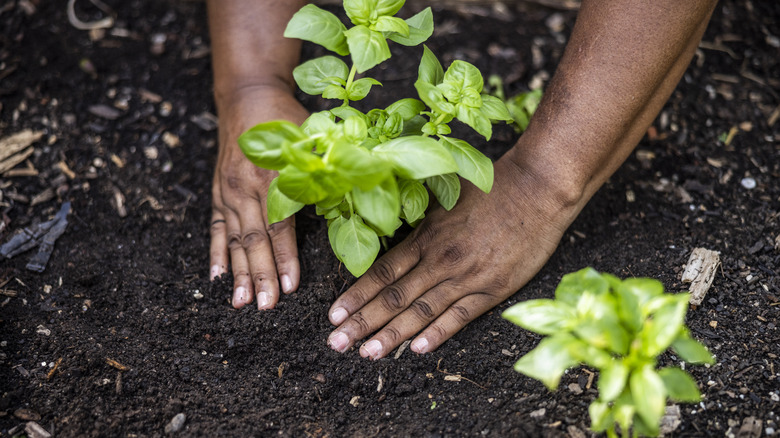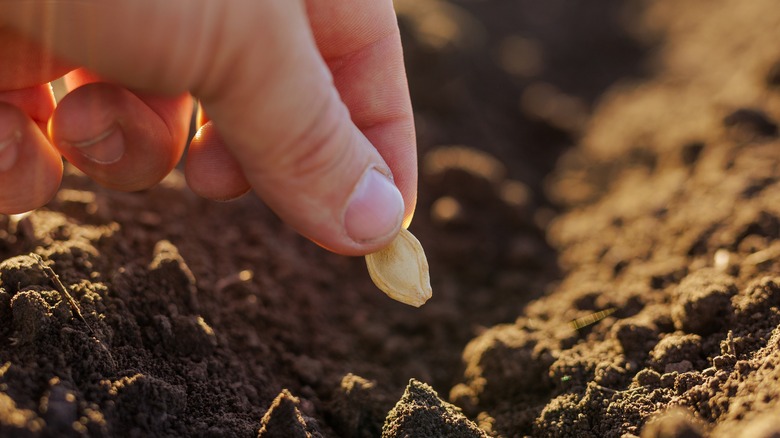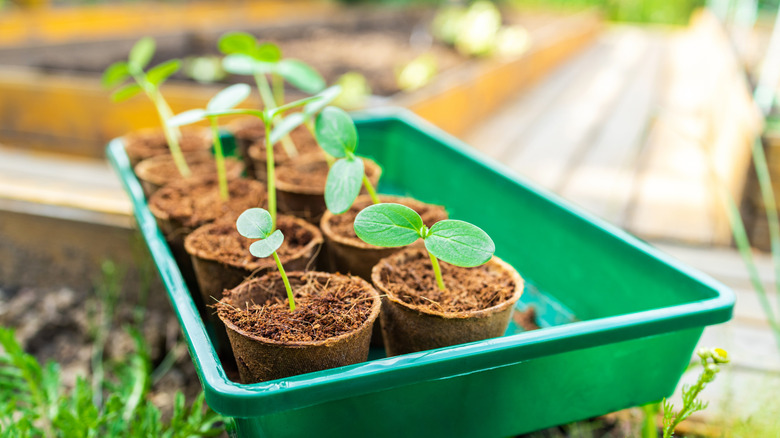Organic And Non-Organic Seeds: The Key Differences Every Gardener Should Know
When beginning your own garden, there are so many different tricks and tips for growing a healthy garden. An important topic that gardeners should know about are the differences between organic and non-organic seeds. To learn more, House Digest spoke exclusively with the owner of Albion Gardens and House Digest Garden Expert Peg Aloi.
According to Aloi, the main difference between organic and non-organic seeds is the type of plant that the seeds came from. "Organic seeds are produced by plants that are fertilized with natural and non-chemical fertilizers, and no chemical pesticides are used," Aloi said. "Chemical fertilizers, pesticides, and herbicides can leave residue on plants and in soil, which can in turn leave residue in seeds, but this residue is generally eliminated once the plant reaches mature size."
Why is the difference between organic or non-organic seeds important?
Organic gardening can be challenging, especially when trying to keep pests away from your plants and produce. However, there are many other factors that contribute to an organic garden. Even with plenty of tips on starting your own organic garden, it can be difficult to know where to start. Knowing whether your seeds are organic or not is an important first step, according to Aloi.
"For gardeners interested in organic, sustainable gardening practices, knowing the origin of seeds is important," Aloi shared. "Introducing non-organic seeds that may have been exposed to chemicals will compromise the integrity of an organic garden by introducing toxins to the soil, and introducing seeds whose genetic make-up may have been negatively affected by exposure to chemicals."
The advantages and disadvantages of organic and non-organic seeds
Trying to decide between using organic and non-organic seeds in your garden? House Digest asked Aloi about the advantages and disadvantages of each type of seed. According to her, "Organic seeds often come from the healthiest plants because they are usually harvested before plants get overrun with pests or diseases: this means organic seeds are strong seeds. However, organic seeds are proven to grow in organic garden systems (soil that has not been exposed to chemicals), and so they will thrive best in an organic garden, and may not fare as well in a garden where chemicals are used."
On the other hand, Aloi shared that non-organic seeds are usually easier to find and more affordable. "For gardeners interested in heirloom varieties, it's much easier to find organic heirloom seeds than non-organic heirloom seeds," Aloi said.
While gardening can seem impossible to some, choosing the best type of seed for your garden is sure to put you on the right foot forward. And, even if you are a pro, there are many gardening hacks that will give you an instant green thumb and teach you some new skills too!


